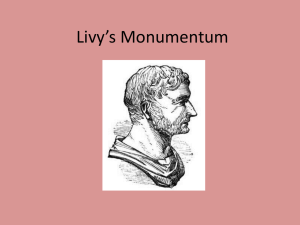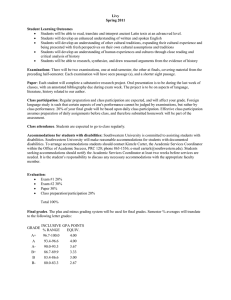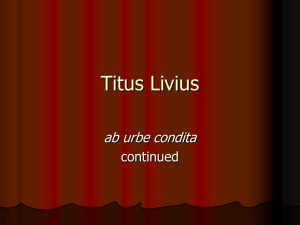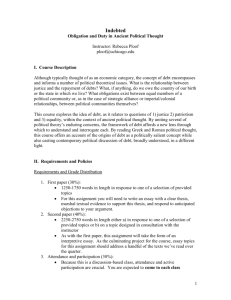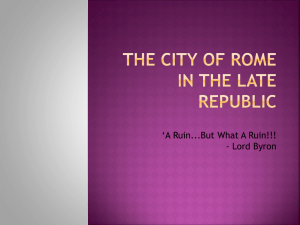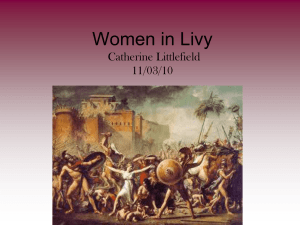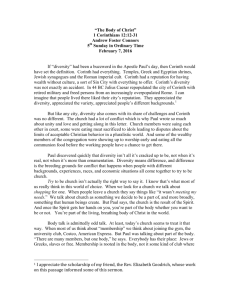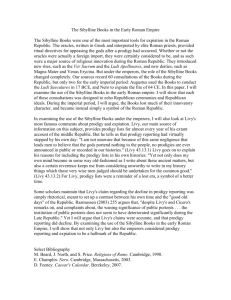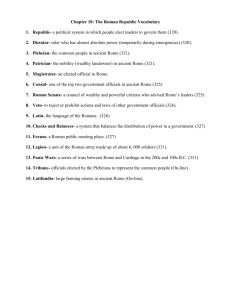History of Rome
advertisement
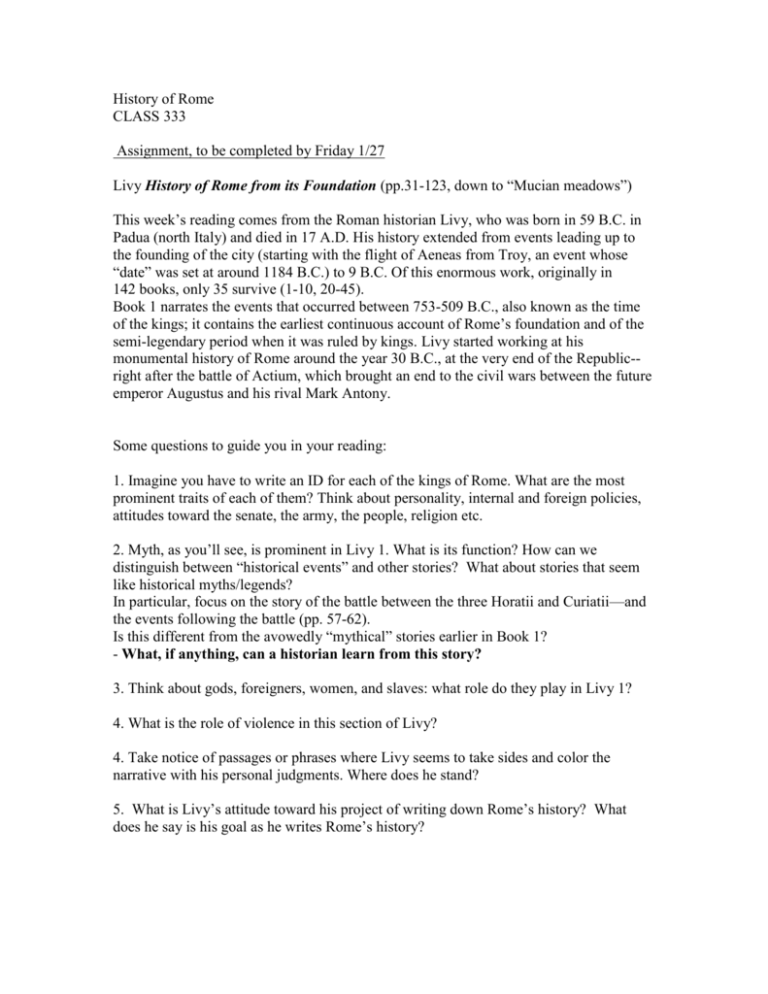
History of Rome CLASS 333 Assignment, to be completed by Friday 1/27 Livy History of Rome from its Foundation (pp.31-123, down to “Mucian meadows”) This week’s reading comes from the Roman historian Livy, who was born in 59 B.C. in Padua (north Italy) and died in 17 A.D. His history extended from events leading up to the founding of the city (starting with the flight of Aeneas from Troy, an event whose “date” was set at around 1184 B.C.) to 9 B.C. Of this enormous work, originally in 142 books, only 35 survive (1-10, 20-45). Book 1 narrates the events that occurred between 753-509 B.C., also known as the time of the kings; it contains the earliest continuous account of Rome’s foundation and of the semi-legendary period when it was ruled by kings. Livy started working at his monumental history of Rome around the year 30 B.C., at the very end of the Republic-right after the battle of Actium, which brought an end to the civil wars between the future emperor Augustus and his rival Mark Antony. Some questions to guide you in your reading: 1. Imagine you have to write an ID for each of the kings of Rome. What are the most prominent traits of each of them? Think about personality, internal and foreign policies, attitudes toward the senate, the army, the people, religion etc. 2. Myth, as you’ll see, is prominent in Livy 1. What is its function? How can we distinguish between “historical events” and other stories? What about stories that seem like historical myths/legends? In particular, focus on the story of the battle between the three Horatii and Curiatii—and the events following the battle (pp. 57-62). Is this different from the avowedly “mythical” stories earlier in Book 1? - What, if anything, can a historian learn from this story? 3. Think about gods, foreigners, women, and slaves: what role do they play in Livy 1? 4. What is the role of violence in this section of Livy? 4. Take notice of passages or phrases where Livy seems to take sides and color the narrative with his personal judgments. Where does he stand? 5. What is Livy’s attitude toward his project of writing down Rome’s history? What does he say is his goal as he writes Rome’s history?
